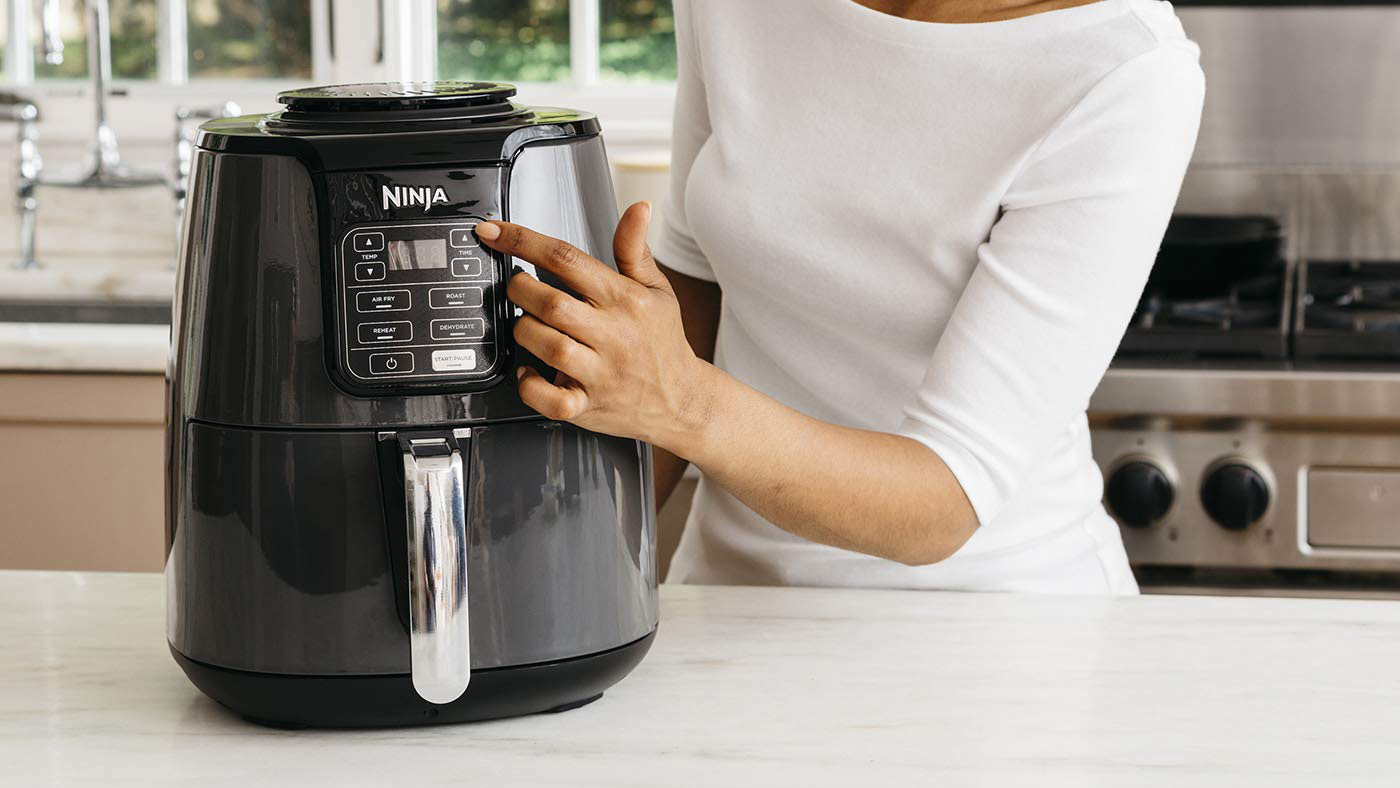

Bethan Girdler-Maslen
The best duvers might look like they'd be hard to wash, due to their size and bulk. However, most of them are quite simple to wash, so if your duvet is feeling a little old or smelling dusty, keep reading to find out how to clean a duvet in seven simple steps.
We spend a third of our lives in bed, so the place you sleep needs to be clean. Even if you regularly wash and change your sheets and bedding, you might neglect your trusted duvet. In fact, the duvet is the perfect breeding ground for dust mites and plenty of other forms of bacteria collected during sleep. Whilst it seems like such a bothersome chore to clean a bulky item, it’s actually not as tricky as it might seem and it can prolong its lifespan.
If you're doing a proper spring clean, why not clean your mattress while you’re at it? Have a read of our how to clean a mattress for great tips. However, if you just want to refresh your duvet, follow our simple steps to make it nice and hygienic.
1. Remove the duvet cover
This may seem fairly obvious, but it isn’t wise to cut corners by washing the duvet inside the cover. Duvets often have special care requirements and so wash it separately to get a more effective clean.
2. Repair weak spots and treat strains
Duvets can be prone to wear and tear over years, so it’s best to sew any teared seams before washing, to avoid further damage in the washing machine. It’s also advisable to isolate any stains on duvets to ensure a thorough clean. Shake any loose feathers away before treating with a good stain remover (or use baking soda).
3. Check the care label carefully
Different types of duvet need their own care so it’s important you read the labels. Firstly, find out whether your duvet is machine washable or if it needs dry cleaning. Many duvets can be washed in the washing machine, but the particulars will vary from product to product, will largely depending on the kind of duvet stuffing you have.
You want to go by the official instructions on the care label (or check the manufacturer brand's website), but there are certain rules of thumb you can expect. Feather and down duvets are best washed at a delicate setting on a low temperature with no spin cycle. This is to avoid flattening the feathers and ending up with a flat duvet! Most synthetic duvets also require a warm gentle cycle of no more than 30 degrees because of the delicate threading. You can usually use a normal spin cycle with these.
Sign up to the T3 newsletter for smarter living straight to your inbox
Get all the latest news, reviews, deals and buying guides on gorgeous tech, home and active products from the T3 experts
If the care label permits it, washing at 60C is the only reliable way to get rid of dust mites, although washing at lower temps can help dissolve the droppings that cause most allergy-sufferers' symptoms.
4. Don't overstuff your washing machine
Before you stuff your duvet into your machine, ensure it will fit nicely. Most 7kg capacity machines can usually accommodate a 10-tog double. The best way to load it in is to fold it in half, slowly spreading out the weight. The duvet needs sufficient space to tumble around the drum. If there isn't enough room in your washing machine, take the duvet to a launderette where there are bigger machines. You don’t want to risk damaging your washing machine, which will be more costly!

5. Use the right washing powder
Harsh washing detergents can strip the down filling of its natural oils and fibers so use a natural powder or a non-biological detergent (without enzymes). Only use a small amount of washing powder, and it’s advisable to run through two rinse cycles to make sure all the soapy suds have been removed. Also, avoid using a fabric conditioner for down duvets as this will seep into the fabric and make it less fluffy.
6. Dry thoroughly before you put back onto bed
If you have a tumble-dryer, the duvet can be dried on a low heat (again, check the label to make doubly-sure it's suitable for your particular duvet though). A tip is to use dryer balls inside the machine to help 'beat’ the duvet to prevent clumps forming. If you don't have dryer balls, remove the duvet every 30 minutes to shake out during the cycle. Continue this until your duvet is completely dry.
On the other hand, feather and down duvets are not suitable for tumble drying so can be hung out to air dry. Bear in mind, duvets take a longer time to dry depending on size, so make sure it’s completely dry before putting it back onto the bed.
7. Never iron a duvet
Even if it looks terribly creased, NEVER iron a duvet. The high heat from the iron will damage the fabric and filling inside which will ruin your beloved duvet. Once the cover is on nobody will ever notice, plus it’s one less thing to iron!
How often should you wash a duvet?
You should wash your duvet once every six months, or once a year at the longest. Even if you're washing your sheets regularly, your duvet will harbour dust mites and bacteria, so it's important to include that in your cleaning cycle too. If you suffer from allergies, you might want to consider washing it every few months (here's some tips on choosing the best duvet for allergies).
Cynthia Lawrence is a freelance lifestyle journalist and digital editor for national publications. She also has a rather unhealthy obsession for Homes & Interiors, and loves a good bargain.
- Bethan Girdler-MaslenHome Editor
-
 This is the sound of BMW's upcoming Neue Klasse EVs
This is the sound of BMW's upcoming Neue Klasse EVsHas BMW cracked the problem of making EVs sound fun with its next-gen soundscape for its Neue Klasse cars
By Alistair Charlton
-
 Build unshakeable core strength with a kettlebell and these three exercises
Build unshakeable core strength with a kettlebell and these three exercisesAdd this to the end of your workout to fire up your midsection muscles
By Bryony Firth-Bernard
-
 I spent 6 weeks with the FoodMarble Aire 2: here’s what I learned about my gut health
I spent 6 weeks with the FoodMarble Aire 2: here’s what I learned about my gut healthI’ve been testing the clever breath-testing gadget with the companion app over several weeks to find out if it delivers on its promises
By Lee Bell
-
 Oil pulling is going viral on TikTok for stopping morning breath – but does it actually work?
Oil pulling is going viral on TikTok for stopping morning breath – but does it actually work?4 hacks that prevent morning breath, according to a sleep expert
By Bethan Girdler-Maslen
-
 These limited edition McLaren x Loop earplugs are what you need for Formula 1 season
These limited edition McLaren x Loop earplugs are what you need for Formula 1 seasonMcLaren teams up with Loop on limited edition noise-reducing earplugs
By Bethan Girdler-Maslen
-
 5 sleep supplements that help me achieve 8+ hours of rest every night
5 sleep supplements that help me achieve 8+ hours of rest every nightIt took me years to perfect my sleep routine – here are the supplements that helped
By Lizzie Wilmot
-
 3 reasons why you wake up at 3am every night – and how to avoid it
3 reasons why you wake up at 3am every night – and how to avoid itAlways waking up in the middle of the night? This could be why…
By Bethan Girdler-Maslen
-
 This tiny device will automatically disable your distracting apps before you sleep
This tiny device will automatically disable your distracting apps before you sleepSay hello to Kip...
By Lizzie Wilmot
-
 Expert reveals how often you should really clean your air fryer – and what happens in you don't
Expert reveals how often you should really clean your air fryer – and what happens in you don'tHave you been neglecting yours?
By Lizzie Wilmot
-
 Therabody experts give 7 tips for perfecting your sleep routine for World Sleep Day
Therabody experts give 7 tips for perfecting your sleep routine for World Sleep DayFrom breathing exercises to sleep masks, here’s how to prioritise sleep, according to experts
By Bethan Girdler-Maslen